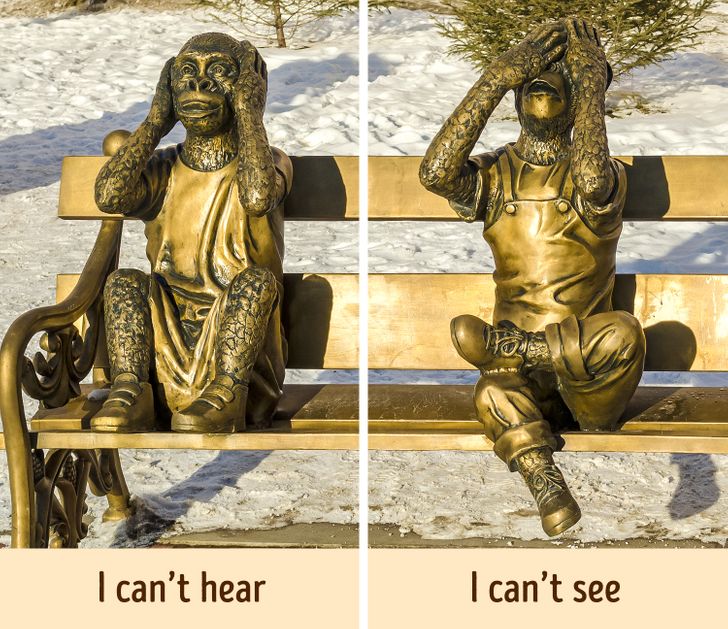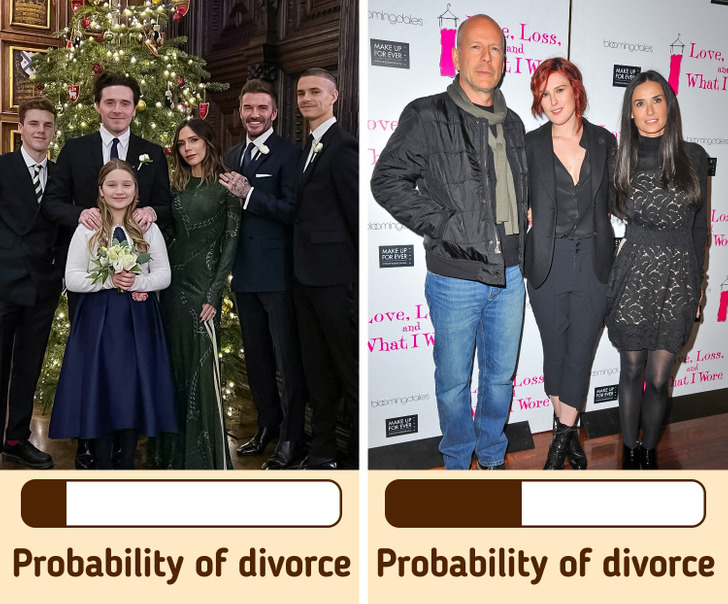Since I started with my online business, I earn $25 every $20 minutes. It sounds unbelievable but you won’t forgive yourself if you don't check it out. Learn more about it here===>>SHOPS5.COM
6 Harsh but Honest Facts That Shine a New Light on the World We Live In
Evolutionary psychologists believe that human nature is the reason for our behavior. It’s true that people sometimes make decisions that have nothing to do with consciousness. We’re inclined to enter into risk or buy expensive things because it’s a developed psychological mechanism. Though, we don’t necessarily choose danger and prestige consciously, we do think that they’ll make our life brighter.
In this article, Bright Side would like to talk about biological and social factors that affect human behavior. Some conclusions might seem immoral, irrational, and even offensive to you. It’s not our intention to make you agree with the authors of the studies you’ll find here, we just want to show you that there are different opinions explaining the motivation of different human actions.
1. Unpleasant people seem bigger and stronger to us than they are in reality.
Californian anthropologists Daniel M.T. Fessler and Colin Holbrook believe that our ancestors initially assessed their enemies by size because a big enemy means a strong enemy.
These scientists conducted an interesting experiment. Some participants were tied down to heavy chairs as if they were supposed to be researched for the psychological effects of limb paralysis. Then photos of aggressive men were shown to them and they were asked to assess how tall and strong these men were. It turns out that the helpless participants believed that the sizes of their potential enemies were much larger than those who were not tied down.
An unpleasant person might seem bigger to you than they are in reality because you don’t want to (or simply can’t) deal with them. That’s why you prefer to stay away from this person, thinking that the risks are too high.
2. We are inclined to believe different prophecies when we are in a bad mood.
Katharine Greenaway from Australia conducted a pretty interesting experiment. She created 3 of them, actually. The first showed that people who were convinced to not be in control reported greater belief in precognition, the second one showed belief in precognition increases perceived control, and the third revealed that when control is low, believing in precognition helps people to feel in control once more as compensation.
Greenaway and her colleagues described the conclusions in the article, “Loss of control increases belief in precognition and belief in precognition increases control.” A person is much more easily influenced if they are upset, and psychic swindlers are very well aware of this fact.
3. Money can really make you happy.
Even in the now-distant 1964, The Beatles sang “Can’t Buy Me Love.” Well, you may not be able to buy love, but you can definitely buy happiness, at least scientists think that it’s possible.
Grant E. Donnelly conducted research showing that wealth is really important. The origin of wealth affects our happiness too. A lottery win or a marriage of convenience brings less happiness to you than the money you earned with your own work.
4. People prefer to avoid facts that don’t comply with their convictions.
People like to have debates on different topics. But why don’t they change their opinion even if there are undeniable facts? Different studies have proven that people refuse to admit evidence that doesn’t adhere to what they already believe.
Subjectivity can be treated with facts, self-education, and the ability to admit mistakes. But the power of facts isn’t limitless. People are ready to ignore evidence and to stand up for their convictions in order to avoid conclusions that are unpleasant to them.
5. We know what our bad habits are, but it’s hard to ditch them.
You think of yourself as a practical person, but still, you can’t resist buying a new pair of sneakers with the last of your money. And you don’t feel joy after that, only guilt, because you’ve already bought 3 pairs of sneakers this month. The same goes for any other bad habit that people can’t seem to resist, from unhealthy eating and sedentarism to the use of substances. These situations are all examples of cognitive dissonance.
It happens when our ideas, convictions, or behavior contradict one another. The problem is that when a person tries to get rid of cognitive dissonance, they don’t look for truth, but rather, try to find excuses for their bad habits, like, “I eat at night because my stomach craves food during this time.” Other opinions are not taken into consideration.
6. Sons decrease the probability of divorce.
Economists Gordon B. Dahl and Enrico Moretti conducted research and discovered an interesting fact. Couples who have daughters have a higher risk of divorce than couples with at least one son. And not only that, but child custody, marriage patterns, shotgun marriages, fertility stopping rules, and child support payments are likely defined by a chromosome. The researchers say that the reason lies in the male preference for a son.
Do you think the scientists are right, or maybe they overestimate the influence of biological factors on our behavior? Are there theories in this list which you completely disagree with? Tell us in the comments below.
Comments
What about a girl and a son?
Related Reads
9 Famous Women Who Have the Most Beautiful Body According to Science

Paris Hilton’s Latest Family Photo Sparks Speculation As Some People Spot a Curious Detail

Zooey Deschanel Stunned Everyone With Her New Look and Fans Think She’s “Unrecognizable”

The World’s Hairiest Girl Is Now Grown Up, Happily Married and Rocks Her New Style After Shaving

A Woman Who Won the “Ugliest Woman” Contest to Earn Money for Her Children

10 Times Prince Harry and Meghan Markle Broke the Golden Rules of the Royal Family

18 People Who Had an Unexpected Stroke of Luck

Helen Hunt, 60, Stuns During Her Latest Appearance, and Her Lips Become the Center of Attention

Anne Hathaway Deemed Unrecognizable After Her Face Shocked Many in New Pics

Keanu Reeves Finally Cuts His Long Hair, and His New Look Causes a Stir

People Online Noticed Brad Pitt’s New Partner Is a Spitting Image of Angelina Jolie

Brad Pitt’s New Partner Is an Angelina Jolie «Look Alike,» According to People Online






